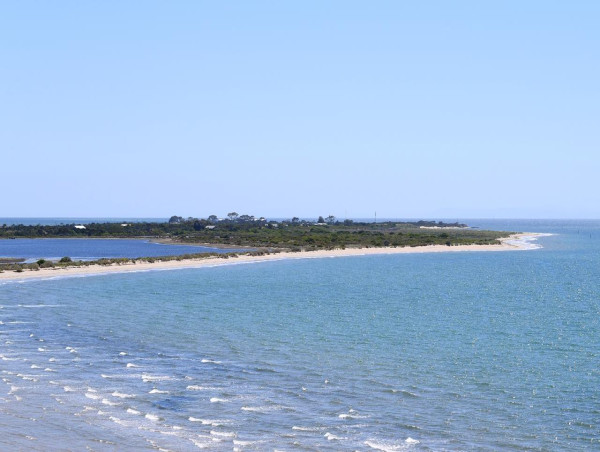The latest big battery project has begun after years of planning as energy entrepreneurs eye a future 100 per cent renewable electricity grid.
Australian-founded renewable energy company GMR Energy said on Tuesday the $330 million project on Victoria's Mornington Peninsula would help fast track the clean energy transition.
Big batteries are vital to the change from coal and gas-fired plants because utility-scale battery energy storage systems (BESS) can provide an essential back-up for solar and wind power.
The Mornington BESS will power the equivalent of 40,000 homes when it connects to the southern part of the Victorian grid, by releasing excess stored energy to cover periods of peak demand.
With development and connection approvals in place, GMR Energy has signed an early works agreement with transmission network service provider AusNet to build the infrastructure needed to connect the standalone facility to the grid by the end of 2024.
GMR Energy CEO Morris Zhou said the critical energy infrastructure would support the Victorian government's objective of improving the reliability of regional electricity in an area that is particularly exposed to fluctuations in demand.
"With the current supply chain issues meaning a significant bottleneck in the availability of transformers and other materials required, we have partnered with AusNet to commence early works and procure long-lead items," he said.
AusNet chief development officer Jon D'Sylva said the infrastructure adjacent to AusNet's existing Tyabb substation would help provide additional energy security to the region.
GMR Energy was formed when Gaw Capital Partners invested in Australian renewable energy company Maoneng, which has plans for other projects across Australia that are intended to support a future 100 per cent renewable electricity grid.
Mr Zhou said four projects in the pipeline include Gould Creek in South Australia, which has development approval, and three in NSW that have had applications lodged.
"We are committed to building out these utility scale batteries on sites we have spent years to identify and develop, and to play our part in supporting Australia's transition to renewables," he said.



